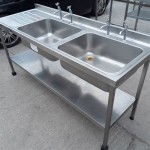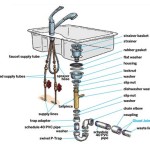Why Does Poop Sink or Float? Unveiling the Secrets of Stool Density
The consistency and density of human feces, commonly referred to as poop, can vary significantly from person to person and even from day to day for the same individual. One observable characteristic of this variance is whether the stool sinks or floats in the toilet bowl. This phenomenon, while often overlooked, is influenced by a complex interplay of factors related to diet, digestion, and overall health. Understanding the reasons behind why poop sinks or floats can provide valuable insights into the body’s digestive processes and potentially signal underlying health conditions.
The density of stool is primarily determined by its composition. Feces are composed of approximately 75% water, with the remaining 25% consisting of undigested food matter, bacteria, intestinal secretions, and dead cells. The specific proportions of these components influence the overall density of the stool; variations in these proportions can directly affect whether it sinks or floats.
Generally, stool that sinks is denser than water, indicating a higher proportion of solid components relative to its water content. Conversely, stool that floats is less dense than water, suggesting a greater presence of gas or undigested fats. While occasional fluctuations in stool density are normal, persistent sinking or floating stool could warrant further investigation and potentially consultation with a healthcare professional.
The Role of Fat Content in Stool Density
One of the most significant factors influencing whether stool sinks or floats is the amount of fat present. Normally, the small intestine efficiently absorbs dietary fats. However, certain malabsorptive conditions can impair this process, leading to an increased fat concentration in the stool. This excess fat, also known as steatorrhea, decreases the stool’s density, making it more likely to float. The presence of excessive fat can also affect the stool's appearance, making it appear pale, bulky, and greasy.
Conditions that can cause fat malabsorption include pancreatic insufficiency, where the pancreas fails to produce adequate enzymes for fat digestion; celiac disease, an autoimmune disorder triggered by gluten that damages the small intestine's lining; and Crohn's disease, a chronic inflammatory bowel disease that can affect nutrient absorption. Other potential causes include gallbladder disorders and short bowel syndrome, resulting from surgical removal of a significant portion of the small intestine.
Therefore, when the body struggles to digest or absorb fats adequately, the undigested fats remain in the digestive tract and are ultimately excreted in the stool. Because fat is less dense than water, a higher fat content in the stool will decrease its overall density, causing it to float. If someone consistently observes floating stool and suspects fat malabsorption, they should seek medical evaluation to determine the underlying cause and receive appropriate treatment.
Beyond specific medical conditions, dietary factors can also contribute to increased fat content in stool. Consuming a diet very high in fat, particularly saturated and trans fats, can sometimes overwhelm the digestive system's capacity to process it all, leading to some fat excretion in the stool. While this is less likely to cause persistent floating, it's a factor to consider in conjunction with other symptoms and dietary patterns. Furthermore, the use of certain weight-loss medications that inhibit fat absorption can also predictably lead to floating stools.
The Influence of Gas Production on Stool Buoyancy
The presence of gas within the stool is another primary determinant of its buoyancy. The human digestive system naturally produces gas as a byproduct of bacterial fermentation of undigested carbohydrates in the large intestine. This gas, composed of various gases such as methane, carbon dioxide, and hydrogen, is typically expelled through flatulence or burping. However, some gas can become trapped within the fecal matter, reducing its overall density and causing it to float.
Certain dietary habits can contribute to increased gas production. Consuming foods high in fiber, such as beans, broccoli, cabbage, and other cruciferous vegetables, can lead to significant gas formation as bacteria in the colon break down these complex carbohydrates. Similarly, consuming sugary drinks or foods containing artificial sweeteners like sorbitol and mannitol can also increase gas production as these substances are poorly absorbed and fermented by gut bacteria.
In addition to dietary factors, certain gastrointestinal conditions can also contribute to excessive gas production. Conditions like irritable bowel syndrome (IBS) are often associated with altered gut motility and increased sensitivity to gas, leading to bloating and increased flatulence. Small intestinal bacterial overgrowth (SIBO), where there is an abnormal increase in bacteria in the small intestine, can also result in excessive gas production as these bacteria ferment carbohydrates that would normally be absorbed higher up in the digestive tract.
Therefore, while occasional floating stool due to increased gas content is generally harmless, persistent floating stool accompanied by other symptoms like bloating, abdominal pain, or changes in bowel habits may warrant medical evaluation to rule out underlying gastrointestinal disorders. It is crucial to note that even in healthy individuals, the composition of the gut microbiome can vary significantly, influencing the amount of gas produced during digestion. Certain probiotic strains can help regulate gut flora and reduce gas production in some individuals.
It is important to consider the context of gas production in stool. If a person has recently consumed a large amount of gas-producing foods, a fleeting episode of floating stool is unlikely to be a cause for concern. However, if the symptom is chronic and accompanied by other digestive issues, further investigation may be warranted.
The Significance of Fiber Intake and Stool Consistency
Although fat and gas content are primary determinants, fiber intake also influences stool density and consistency, which indirectly affects whether it sinks or floats. Fiber, a type of carbohydrate that the body cannot digest, adds bulk to the stool and helps regulate bowel movements. Adequate fiber intake typically results in stools that are well-formed and cohesive, which are more likely to sink.
There are two main types of fiber: soluble and insoluble. Soluble fiber dissolves in water, forming a gel-like substance that slows down digestion, helps regulate blood sugar levels, and lowers cholesterol. Insoluble fiber, on the other hand, does not dissolve in water and adds bulk to the stool, promoting regularity and preventing constipation. Both types of fiber are essential for digestive health and can contribute to the formation of denser, less buoyant stool.
A diet lacking in fiber can lead to smaller, harder stools that are more prone to constipation. Constipation can result in prolonged fermentation of undigested food in the colon, leading to increased gas production, which, as mentioned earlier, can contribute to floating stools. Furthermore, a high-fat, low-fiber diet can overwhelm the digestive system and lead to increased fat excretion in the stool, further enhancing the likelihood of floating stools.
Conversely, an excessive intake of fiber, particularly if introduced suddenly, can also lead to digestive issues, including bloating and gas. Although this increased gas production can temporarily cause stools to float, the long-term effect of a consistently high-fiber diet is typically to promote the formation of denser, more regular stools. It's therefore beneficial to increase fiber intake gradually to allow the digestive system to adapt.
Maintaining a balanced diet with adequate fiber intake is crucial for optimal digestive health and regular bowel movements. A diet rich in fruits, vegetables, whole grains, and legumes provides both soluble and insoluble fiber, promoting the formation of well-formed, dense stools that are more likely to sink. Supplementing with fiber can also be beneficial for individuals who struggle to consume enough fiber through their diet alone; however, it's crucial to consult with a healthcare professional before starting any new supplements.
It's important to consider that factors that influence the gastrointestinal transit time can also affect stool consistency and density. For example, diarrhea can lead to rapid passage of stool through the digestive system, resulting in poorly formed stool that may float due to incomplete digestion and absorption.
In summary, whether stool sinks or floats is determined by a complex interplay of factors related to diet, digestion, and overall health. While occasional fluctuations in stool density are normal, persistent sinking or floating stool could warrant further investigation and potentially consultation with a healthcare professional, particularly if accompanied by other digestive symptoms. A balanced diet, adequate hydration, and regular physical activity are essential for maintaining optimal digestive health and promoting normal stool consistency and density.
Is Your Poop Supposed To Float Or Sink It A Bad Sign If Some Of Floats Quora

Bowel Cancer Symptoms Should Poo Sink Or Float What A Healthy Stool Looks Like Express Co Uk

Researchers Have Looked Into Why Some Poos Float Or Sink In The Toilet Bbc Newsround
Floating Poop What It Means And When S Normal

Why Does Some Poop Float While Others Sink Scienceabc

We May Finally Know Why Some Poops Float Iflscience

Floating Poop Causes Is It Normal And When To See A Doctor

Teaching Science When You Don T Know Diddly Squat Why Does Poop Splash 4 H

Should Your Poop Sink Or Float The Gut Health Doctor

9 Excrement Types Ideas Stool Chart Health Healthy







